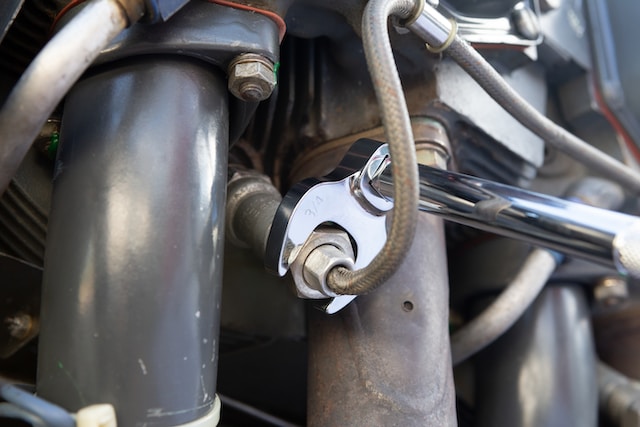Understanding the 5 Benefits of Hydraulic Oil
Hydraulic oil is unique in that it lubricates equipment and transfers power. It must meet many requirements, including foaming resistance and air release; thermal, oxidation, and hydrolytic stability; and anti-wear properties.
Hydraulic systems that are well-oiled and debris-free will require less maintenance and downtime, reducing business disruptions. Keeping the viscosity of hydraulic oil within an optimum range will ensure faster machine cycle times and reduced power consumption.
Reduces Wear and Tear
The right hydraulic oil will lubricate your equipment and machinery, reducing friction and wear and prolonging the life of your system. It will also transfer heat and dissipate it effectively, preventing overheating and damage to components.
Hydraulic oil Charlotte, NC, is formulated to be compatible with seals, preventing leakage and extending their life. It also contains corrosion inhibitors to protect against rust, pitting, and scale.
Every hydraulic fluid has a designated temperature range where it performs optimally – outside this range, and it can wax and freeze in cold conditions or become too thin at high temperatures, leading to inefficiencies and system damage. Hydraulic oil is often blended with additives to improve its temperature and properties like viscosity-temperature stability.
Reduces Downtime
Using the right hydraulic oil extends the life of your equipment. It also reduces downtime because it keeps your equipment functioning correctly and avoids damage that leads to costly repairs.
Hydraulic oils act as energy transfer mediums, lubricants, and sealants for mechanical machinery like cars, construction equipment, and aircraft flight controls. They protect against wear and corrosion in harsh environments. They also cool equipment and carry away contaminants.
They’re a vital part of any machine that needs to work under pressure. An excellent hydraulic oil is thermally stable and stays fluid across extreme temperature fluctuations. It should be formulated with additives to enhance its performance, including anti-wear protection, rust inhibitors, and foam suppression.
Increases Efficiency
The hydraulic system within forklift trucks and stackers powers the hefty loads they need to lift. Using this energy efficiently can save money at the fuel pump and electricity meter and reduce wear and tear on equipment.
Hydraulic fluids comprise different base fluids and additives depending on the desired properties. These additives include lubricants, anti-oxidants, dispersants, defoamers, corrosion inhibitors, and abrasion-resistant additives.
The goal for blenders of hydraulic oils is to create a fluid that can work effectively over a wide temperature range with a stable viscosity. This reduces the risk of viscosity fluctuations, which can cause power loss and reduce shear stability. Using a high-quality multigrade hydraulic oil with a low start-up viscosity will also help shorten your equipment’s warm-up time.
Reduces Maintenance Costs
Keeping your hydraulic fluid clean helps it perform better, extends equipment life, and reduces maintenance costs. Dirty hydraulic oil can restrict power flow to your equipment, making it less efficient and increasing energy consumption. This can lead to overheating, hose failure, expensive repairs, and system downtime.
When choosing your hydraulic oil, look for one with a high bulk modulus and viscosity index to resist changes in volume and viscosity with temperature variations. Low bulk modulus and viscosity can cause internal leakage that wastes power, while high bulk modulus and viscosity prevent it.
Reduces Environment Impact
A significant advantage of hydraulic oil is that it helps reduce the environmental impact. Conventional petroleum-based products damage the atmosphere when they burn or volatilize and pollute the environment when equipment leaks. When hydraulic fluid leaks from bulldozers, tractors, and snow plows, it can soak into parking lots and roadways, where it may mingle with groundwater and underground streams.
To reduce this impact, hydraulic oil can be formulated to have higher temperature stability and better resistance to degradation. This is especially important for applications that require hydraulic oil in environmentally sensitive environments, such as dredging equipment, flood control structures, marine applications, and hydraulically operated bridges, dams, and locks.



